In the picturesque valleys of Kashmir, where communities have faced years of uncertainty, mental health remains a critical yet often overlooked concern. Two drivers with Doctors Without Borders India/ Médecins Sans Frontières (MSF), Mohammad Yakoob and Mohammad Ashraf, have witnessed firsthand how perceptions of mental health have evolved over two decades.
His colleague Mohammad Ashraf, who joined in 2002, nods in agreement. “I didn’t know what counselling was or what mental health meant. In Kashmir, people didn’t understand what counselling was.”
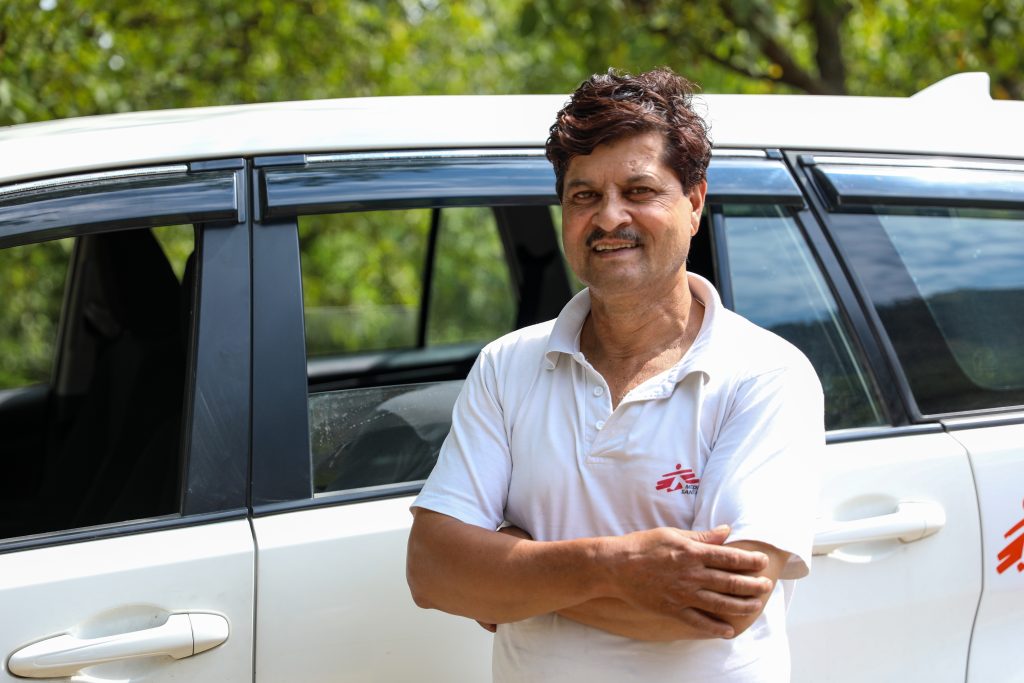
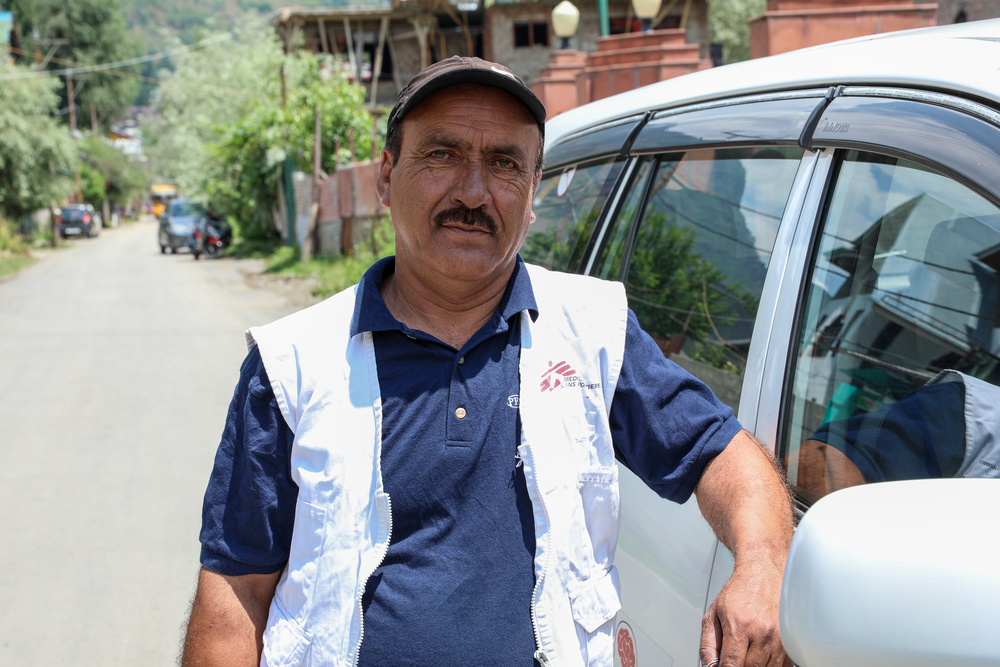
A Journey of Transformation
Both drivers have observed remarkable changes in how communities perceive mental health services. Today, the situation has transformed dramatically. “Now people come to us asking for help,” says Yakoob. “They have our contact numbers. They know where we work. Now I think majority of people know what mental health is,” Yakoob says with quiet pride.
The transformation has been particularly notable in urban areas. “In the city, people have good awareness now,” Yakoob explains. “When I joined MSF, only few people understood mental health. Now every other person I meet know what it is.” This dramatic shift reflects years of consistent community engagement and education.
Their role extends beyond simply transporting MSF staff to various locations. They serve as vital links between communities and mental health services, often becoming advocates themselves.
“I’ve personally brought at least 10-15 people to MSF,” says Ashraf. “When I saw how counselling works, I noticed people would enter the counselling room tense, their appearance affected by stress, but would come out smiling. That’s when I understood what counselling is, and I started telling many people about it.”
The Critical Backbone: Enabling Mental Health Work
Each day begins early for these drivers. Mohammad Ashraf leaves home at 8:30 am, reaching the office by 9:00 am for a brief team meeting. Before departure, he meticulously inspects his vehicle—checking water levels, tire pressure, and overall condition. “My first responsibility is to check everything,” he explains. “Only then do I tell the counselors and supervisors to sit in the car, fasten their seatbelts, and we start our journey.”
The careful planning of each day’s movements is critical. “We look at the movement board to see where we need to go and which staff members need pickups from which locations,” Yakoob explains. Their carefully coordinated schedules ensure counselors can reach remote Primary Health Centers (PHCs) where people await mental health services.
Mohammad Ashraf describes a typical day: “If we’re going to Sopore, we leave Srinagar office early, the time depends on the schedule. We transport supervisors and community health workers, sometimes visiting two or three PHCs in a single day.” These journeys take them across varied terrain, from urban centers to remote villages where mental health services would otherwise be inaccessible.
Their work requires constant vigilance regarding safety conditions. “We follow a strict protocol,” Yakoob emphasizes. “Regularly, we must call the logistic team to report our location and how many kilometers we’ve traveled. We don’t mention specific places, but its important to track the movements to ensure safety.”
Their knowledge of local routes and conditions proves invaluable, especially when adapting to changing circumstances. “We know alternative paths and can make decisions quickly to ensure our team reaches their destination safely”, says Ashraf.
The drivers also play an essential role in maintaining the supply chain. “When counselors need to bring materials to these remote locations, we help transport everything they need,” Yakoob adds. “We ensure nothing is left behind and that everything reaches the people who need it.”
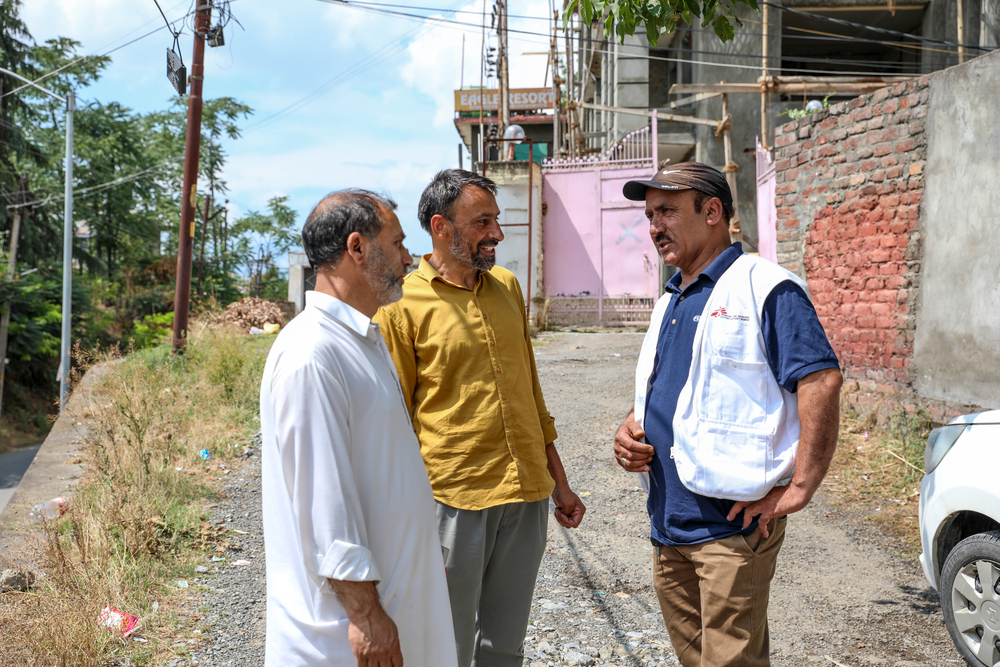
Mohammad Ashraf adds, “We also enforce safety rules. We won’t start driving until everyone has their seatbelts on—no exceptions.”
These responsibilities make the drivers indispensable to MSF’s mental health mission in Kashmir. Without their expertise in navigating both the physical terrain and complex landscape, many communities would remain cut off from vital mental health services.
Navigating Challenges: From Conflict to Natural Disasters
Operating in Kashmir presents unique challenges that few drivers elsewhere would encounter. The region’s complex situation requires constant adaptation, making every journey an exercise in careful planning and risk assessment.
Both drivers have developed an intuitive understanding of when to proceed and when to turn back. “You learn to read the situation,” Ashraf says.
Natural disasters have presented some of their most significant challenges. During the devastating floods of 2014, the MSF team faced extraordinary obstacles in reaching affected communities. “The roads were completely submerged in many areas,” Yakoob recalls. “People had such high expectations that we would help them, but reaching them was incredibly difficult.”
Despite these challenges, the drivers found ways to navigate through flood waters. “We used 4×4 vehicles to reach areas where no other vehicles could go,” Yakoob explains. “We delivered water, medicine, and essential supplies to communities that were completely cut off.”
Their response during the earthquake was equally remarkable.
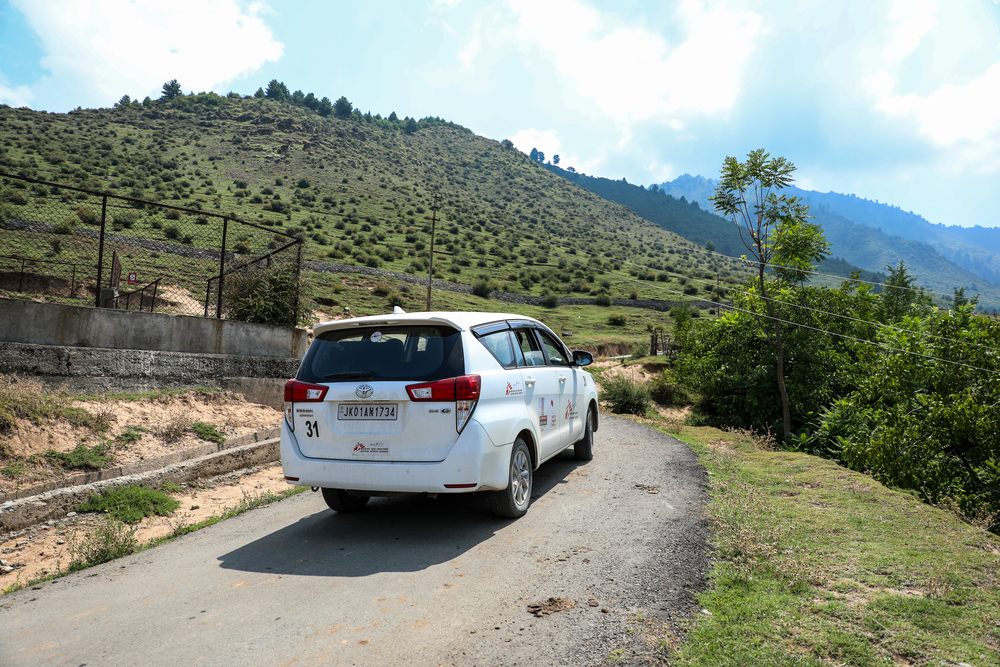
The earthquake response demanded extraordinary commitment. “We worked without breaks for three weeks,” Yakoob says. “We slept at the site instead of going home because there was no time. Supplies would arrive, and immediately we would load, unload, and distribute them to affected areas.”
Both drivers emphasize that these challenges were met as a team. “During these crises, job titles didn’t matter,” Ashraf notes. “Everyone did whatever was needed. We set up tents, distributed cooking supplies, and provided whatever support we could. The MSF spirit was to help in any way possible.”
Through all these challenges, their commitment never wavered. “When you’re motivated by helping your own people, there’s no task too difficult,” Ashraf reflects. “We never backed down from any challenge when we knew people needed us.”
Finding Balance: Managing Stress and Finding Joy
The demanding nature of their work requires effective stress management.
For Mohammad Ashraf, the transition from uncertainty to stability has been transformative.
Ashraf credits his work with MSF for teaching him healthy ways to manage stress. “Being part of emergency responses and witnessing counseling sessions has shown me the importance of balance,” he explains. “I’ve learned to recognize signs of stress in myself and others. Now when I feel overwhelmed, I know how to step back and reorient myself.”
Beyond the office, both find strength in family time. “When I’m home, I spend time with my children,” says Yakoob. “In the morning and evening, I go out with them for walks. On Sundays, we always go somewhere together since that’s when they’re not in school.”
Ashraf similarly cherishes family moments, noting how working with MSF has provided stability that allows him to be present for his loved ones. He also loves spending time his pet cat and listens to music to manage the stress that comes with our responsibilities.
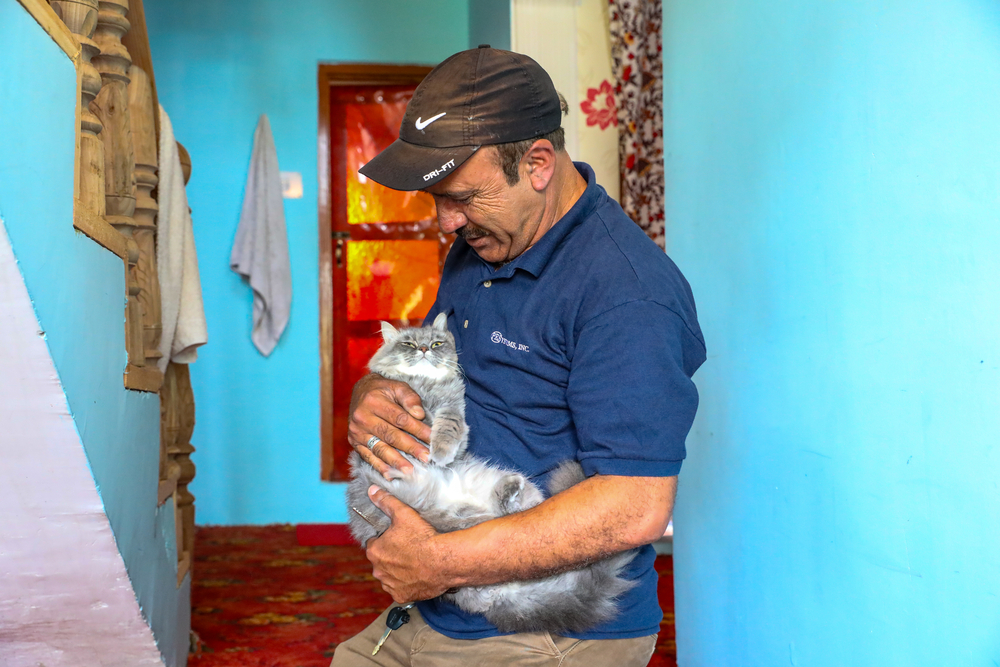
Recognizing Signs, Breaking Barriers
Years of working alongside mental health professionals have given these drivers insights into recognizing potential mental health concerns.
Both drivers recall a time when mental health carried heavy stigma. People feared being labeled “pagal” (crazy) or facing social rejection. Religious leaders sometimes viewed MSF with suspicion, questioning their motives.
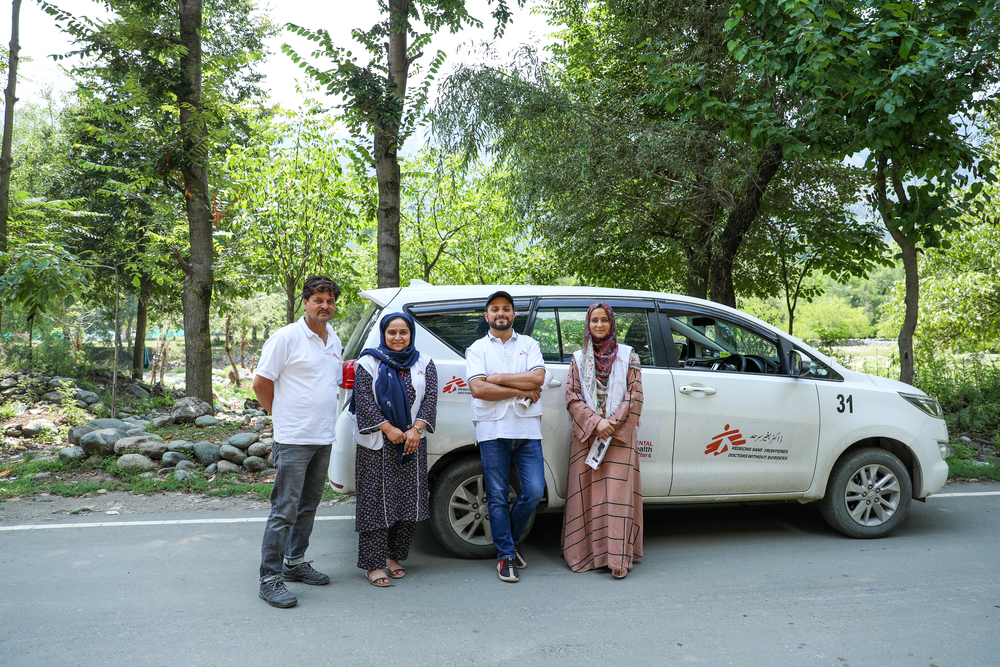
“Earlier, people had misconceptions about MSF’s work that might mislead people,” Yakoob recalls. “Our team would meet with community leaders and explain our work. It took time to build trust.”
The stigma was particularly strong in rural areas. As Yakoob explains, “In villages, there’s still some hesitation. People are afraid of being called ‘pagal’ (crazy) or being labeled. But in the city, people now openly seek help.” To address this, MSF teams actively conducted door-to-door awareness in villages, building trust gradually over time.
To overcome these barriers, the MSF team developed a strategy of direct engagement. “We would arrange meetings with community leaders,” explains Yakoob. “We would explain our work and answer their questions. It took time to build trust.”
Beyond Driving: Community Education
The impact extends beyond individual counselling sessions. MSF’s approach to community mental health has helped normalize discussions about mental wellbeing.
“MSF’s community mental health workers visit homes in villages,” Yakoob explains. “They know which households have needs. Earlier, we wouldn’t know, but now we can identify where help is needed.”
The community mental health workers conduct extensive outreach, visiting individual homes to provide information and identify those who might benefit from counseling. This proactive approach has been crucial in reaching people who might otherwise never seek help.
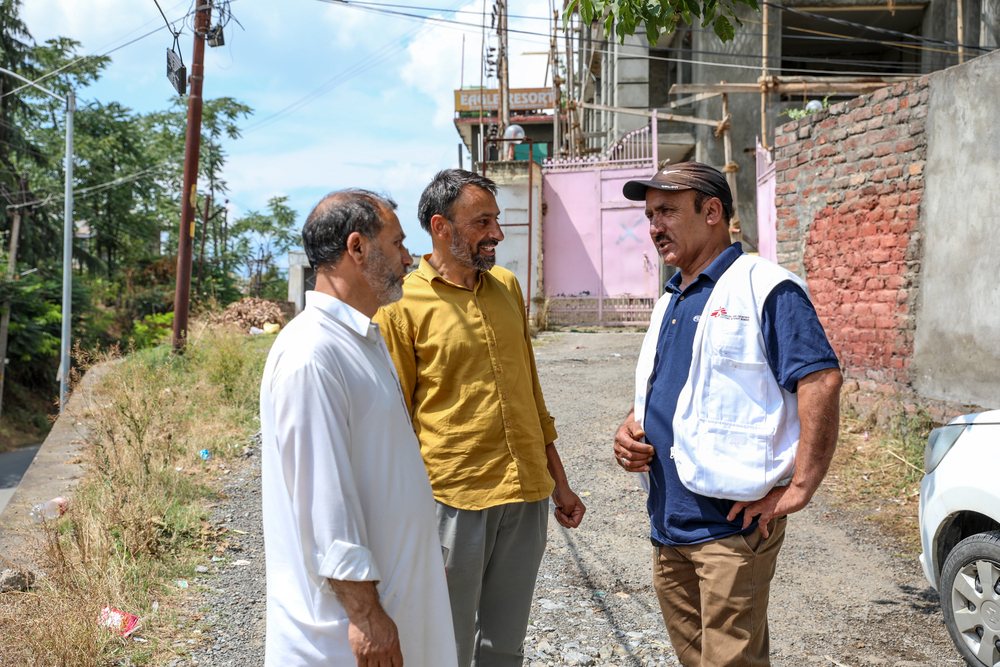
Both drivers believe MSF should expand services to reach more communities. “We’re only in South Kashmir and North Kashmir,” says Yakoob. “People in other areas have expectations too. They hear about MSF on the radio, but it’s difficult for them to travel here—they don’t have money for transport, and it takes a full day to come and go.
Personal Growth and Understanding
Working with MSF has transformed the drivers’ own perspectives and lives.
For Yakoob, MSF represents equality and respect. “The respect you get at MSF—doesn’t depend on your job title. Everyone is treated equally. That’s what motivates us. Twenty-three years isn’t a joke, working in one place on one project.”
Even their families have embraced mental health awareness. “My daughter is 19 and studies at university,” says Yakoob. “Now she explains mental health to me! She researches MSF online and tells me about how many countries MSF works in.” His daughter often shares facts about MSF’s global presence, mentioning that MSF operates in over 70 countries with tens of thousands of employees worldwide.
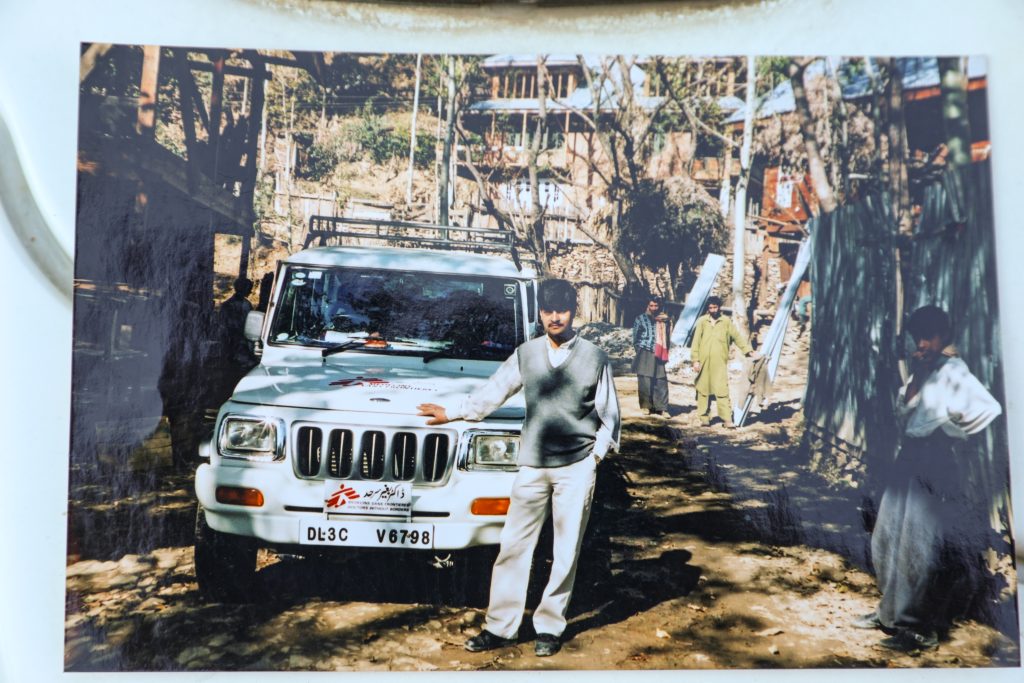
Their long time with MSF has made the drivers trusted figures in their communities. “People sometimes come to my home asking for information about MSF services,” Yakoob shares. “The level of trust people have in MSF is remarkable—during disasters, people even offered donations, saying ‘we trust you to use this properly.’”
As mental health awareness continues to grow in Kashmir, these drivers remain committed to supporting their communities. Their story illuminates how MSF’s collaborative approach with local communities has helped reduce stigma and increase access to vital mental health services—one journey at a time.
The road to mental health recovery in Kashmir may be long, but with dedicated individuals like Mohammad Yakoob and Mohammad Ashraf behind the wheel, the journey becomes more accessible for those in need of support.
MSF has been providing free counselling services to people affected in Kashmir since 2001. Currently, our teams provide counselling services at hospitals and Primary Health Centers in: Pulwama, Srinagar, Tral, and Sopore. Along with this, to combat the stigma associated with mental illness, MSF teams also raise awareness on the importance of mental health and the need for mental health services in the region. The project is increasingly providing mental health care to more people, closer to their communities.












